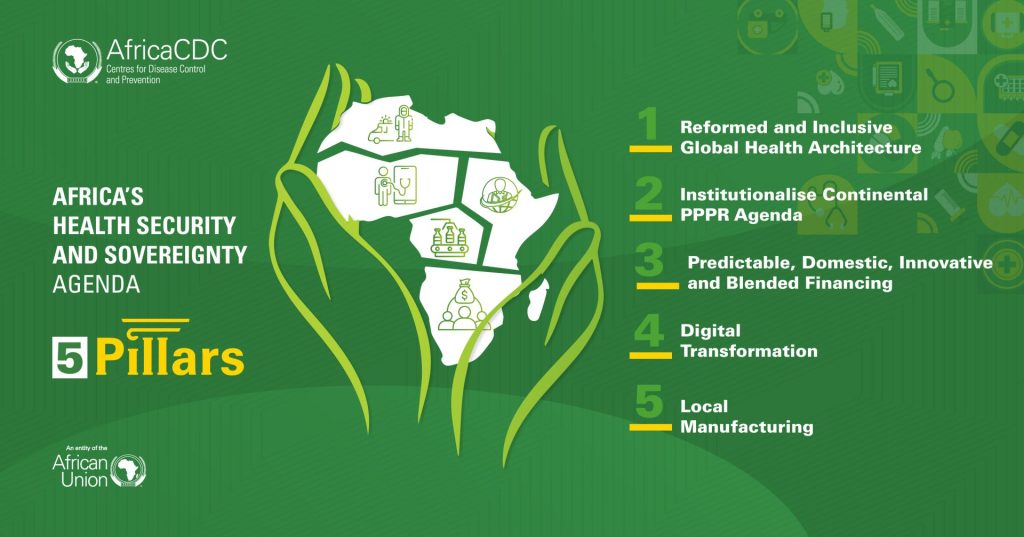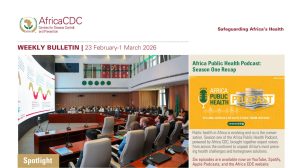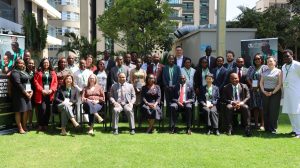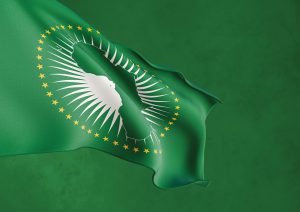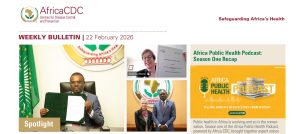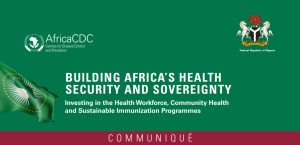Addis Ababa, 21 November 2025 — The Africa Centres for Disease Control and Prevention (Africa CDC) today unveiled a renewed vision for Africa’s Health Security and Sovereignty (AHSS) Agenda to safeguard the continent against rising health threats while reducing dependency on external systems, manufacturing, procurement, supply chains, and financing.
The AHSS Agenda builds on the foundations of the New Public Health Order (NPHO), endorsed by African Heads of State in 2022. While the NPHO drove major progress in institution building, workforce development, and regional collaboration following COVID-19, Africa now faces a more complex and constrained global health landscape.
External health aid to the continent has dropped by nearly 70% since 2021, even as disease outbreaks increased by more than 40% between 2022 and 2024. Climate shocks, shifting geopolitical priorities, fragile supply chains, and persistent inequalities continue to place African health systems at risk.
Building on numerous dialogues, including the meeting held by H.E. President Kagame in February 2025 in Addis Ababa with the attendance of African Heads of State; the high-level meeting organised by H.E. President John Mahama in Accra in August 2025; and the Africa CDC Committee of Heads of State and Government meeting led by H.E. President João Lourenço in September 2025 in New York, Africa CDC was tasked with setting out a strengthened vision anchored in five interconnected pillars and translating this into practical and operational action.
At the heart of the agenda is a shift towards a more equitable global health architecture, one in which Africa holds decision-making power proportional to its needs and contributions.
- The first pillar focuses on the global health architecture reform guided by a clear principle: countries lead, regions coordinate, and the global level supports. With a strong and capable Africa CDC, Africa becomes an indispensable co-architect of this architecture, ensuring full alignment of global health initiatives with Africa’s vision.
- The second pillar focuses on the Pandemic Prevention, Preparedness and Response (PPPR) by integrating Africa’s epidemiological surveillance systems, laboratory networks, National Public Health Institutes (NPHIs), Public Health Emergency Operations Centres (PHEOCs), and emergency response workforces such as the Kofi Annan Health Leadership Programme, the Africa Volunteers Health Corps (AVoHC), and emergency operations. Together, these components form a unified architecture for early detection, rapid response, and sustained readiness. This PPPR pillar will be backed by the African Epidemic Fund (AfEF), which will mobilise resources from multiple sources and ensure their timely availability to Member States in need.
- The third pillar focuses on sustainable health financing, as articulated in “Africa Health Financing in a New Era.” Africa CDC is calling for increased domestic resource mobilisation, innovative financing — including the use of health-related levies and sin taxes — and blended financing models that leverage both public and private sector investment. This pillar also emphasises the need to strengthen public financial management systems and accelerate implementation of the Lusaka Agenda for better alignment of external resources with the health priorities and long-term vision of African governments.
- The fourth pillar focuses on advancing the Digital Transformation Agenda by establishing a region- and country-owned Digital Intelligence Ecosystem that enables real-time data flows from the community level to national and continental platforms — strengthening Africa’s data sovereignty and decision-making capacity. This pillar also prioritises broadband connectivity, ensuring that every health facility — including rural and primary health centres — is connected to reliable internet infrastructure to support surveillance, reporting, and service delivery.
- The fifth pillar focuses on advancing Africa’s local manufacturing agenda, supported by the African Pooled Procurement Mechanism led by Africa CDC in collaboration with AfCFTA, and underpinned by strong regulatory oversight led by the African Medicines Agency (AMA). The goal is to accelerate the vision of African leaders to ensure that, by 2040, at least 60% of essential medical countermeasures — including vaccines, diagnostics, and therapeutics — are produced on the continent.
Africa’s Health Security and Sovereignty (AHSS) Agenda reinforces the message championed by the New Public Health Order (NPHO) while adding two previously missing, critical components: a robust digital transformation agenda and reform of the global health architecture.
Unveiling the new agenda, H.E. Dr Jean Kaseya, Director-General of Africa CDC, said: “Africa’s Health Security and Sovereignty Agenda is non-negotiable. It represents our collective commitment to move from dependency to ownership, and from vulnerability to resilience. A secure and self-reliant Africa is essential not only for our continent, but for the stability of global health systems. Health sovereignty does not mean isolation — it signals a new model of partnership in which African nations lead with clarity and confidence, and global partners support African-defined priorities.”
Recognising the challenges Africa continues to face — from financing and workforce gaps to constraints in production, data, and governance — Africa CDC is advancing an ambitious and unified continental approach. Working closely with African Union Member States and partners, Africa CDC will establish a continental scorecard to ensure shared accountability and strengthen political advocacy so all countries can champion and implement the AHSS Agenda.
###
About the Africa CDC
The Africa Centres for Disease Control and Prevention (Africa CDC) is a public health agency of the African Union. It is autonomous and supports member states in strengthening health systems. It also helps improve disease surveillance, emergency response, and disease control. Learn more at: http://www.africacdc.org and connect with us on LinkedIn, Twitter, Facebook and YouTube
Media Contacts
Margaret Edwin
Director of Communication and Public Information EdwinM@africacdc.org

